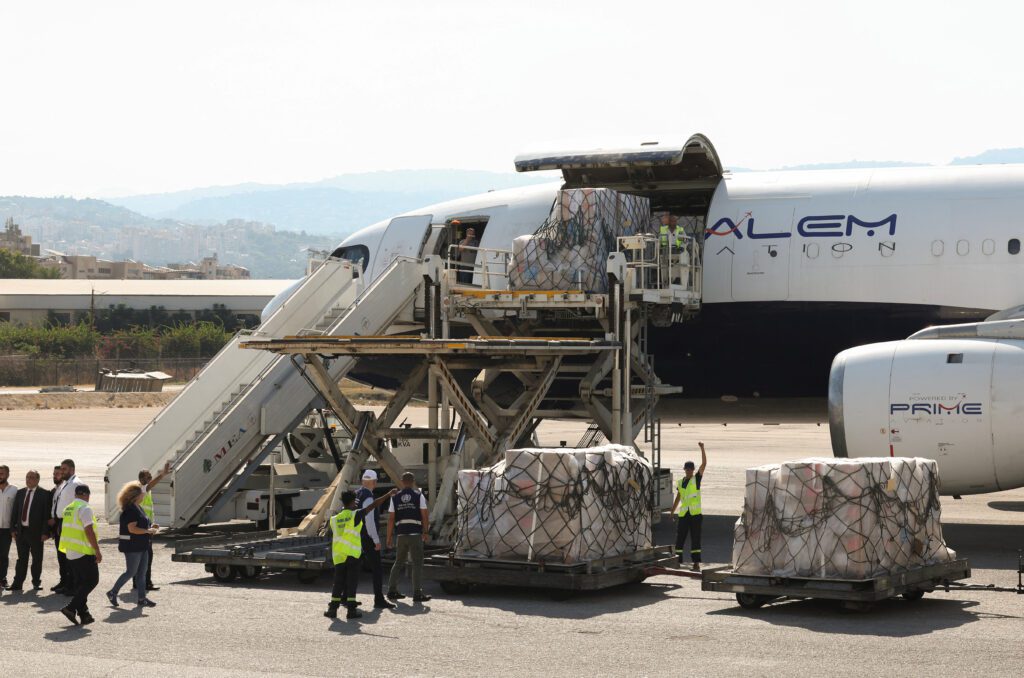Minister of Public Health, Firas Abiad, announced that the ministry is preparing for a potential wide-scale war. Lebanon’s healthcare system has already been in a state of crisis before 2023, and a wider expansion of the fighting risks bringing it to its knees.
Yesterday, Israel launched its heaviest airstrike on southern Lebanon since October 8, using bunker-busting bombs for the first time over the town of Kfar Kila, destroying four residential houses. No casualties have been reported so far.
Earlier in the day, Israeli strikes targeted numerous areas in South Lebanon. One raid targeted the municipality of Chihine in the Tyre District, while a drone strike hit a car on the highway of the town of Baraachit in the Nabatiye Governorate.
While both scenarios of an all-out expansion of the war and a nearing ceasefire remain plausible, Israeli strikes have continued striking non-stop in the meantime.
After the Israeli strike that targeted a residential building in Beirut’s Southern Suburbs and killed senior Hezbollah commander Fouad Shukr and the assassination of Ismail Haniyeh in Tehran, Iran two weeks ago, international alerts regarding the situation in Lebanon have considerably risen.
Preparations of the Ministry of Health
Until last week, healthcare facilities had cut costs with little backup for emergencies. According to Abiad, the Ministry of Public Health has now built an inventory with up to four months’ worth of critical supplies, and put forward significant plans in preparation of an expansion of the fight.
According to AP News, Abiad hoped that all efforts put in preparation of this emergency “go to waste”, and that a wider war is averted, with the best scenario taking place is that all of these preparations turn out to be unnecessary.
Last week, the ministry received 32 tons of emergency medical supplies from the World Health Organization (WHO) for “treating war wounds” amid efforts to prepare for an escalation in the Israeli aggression on Lebanon.
However, the AP article highlights that UN agencies and other humanitarian actors had to reallocate funds from existing initiatives to cater for the over 100,000 individuals who were displaced from southern Lebanon since the conflict began. Abiad also highlighted issues related to securing fuel for electricity and patrol for ambulances, which are outside of the ministry’s control.
Functioning Amidst Enormous Constraints
Israeli strikes have repeatedly targeted healthcare personnel in the current conflict. So far, Israeli forces have killed 21 healthcare workers as of July 24, according to an OCHA tally. Humanitarian aid and urgent interventions have been repeatedly obstructed or targeted in both Lebanon and Gaza.
After more than five years of a multifaceted socio-economic crisis, Lebanon’s healthcare system is already in an extremely deteriorated state and remains ill-prepared for all-out war.
Expensive private healthcare, coupled with malfunctioning and underfunded public systems and absent pharmaceutical products have left the country’s most vulnerable groups unable to access basic needs.
Amid absent interventions to end the ongoing Israeli aggressions, and amid absent political initiatives to deal with the current economic crisis, the population in Lebanon is left to face extremely grim prospects in the upcoming period.
